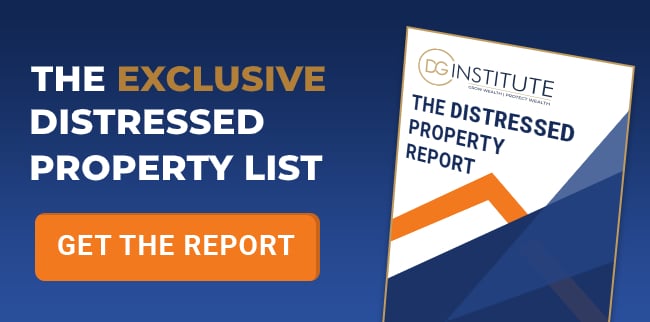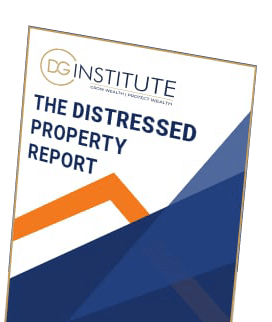The Three Long-Term Investment Ideas for Young Adults
Published 12:00 am 27 Jan 2020

Many young adults don’t spend much time thinking about their financial futures. But with the right long-term investment strategies, you can create an even brighter tomorrow. DGI Institute’s Dominique Grubisa explains how.
Long Term Investment Ideas
When you’re a young adult, you likely don’t put a lot of thought into what your money situation will look like in the future. If you are investing, it’s likely that you’re only going for short-term payoffs.
Perhaps you don’t have the patience to play the long game. Or, you just want cash now so that you can enjoy it while you’re still young.
That’s all fine…but let us ask you a question:
What will your financial future look like if you’re not making good long-term investments?
It’s probably a question that nobody asked you when you were in school. And we’re already seeing a lot of millennials experiencing worries about their future finances, as pointed out by a Canstar article:
“Experian surveyed over 1,500 Australians including over 500 Baby Boomers (aged 55+), almost 600 Gen Xs (35-54 years old) and just over 400 Millennials (34 years and under).”
“Millennials were found to be around twice as likely as the average Gen X or Baby Boomer to believe they could not maintain their lifestyle without borrowing”
Maybe now, you find yourself wondering what your future’s going to look like financially.
The good news is that there are several great investment strategies for young adults. But before getting to those, let’s look at why you need to invest for the long term in the first place.
→ Download The Free Exclusive List Of Distressed Property To Find Property At Up To 10-40% Below Market Value
The Benefits of Long-Term Investing?
So…why start now?
For one, investing for long-term growth gives you an opportunity to learn.
Your investment won’t live or die based on the whims of a short-term market, as it may with stocks and shares. That means you have room to make the occasional mistake without it proving catastrophic.
Investing over a longer period also gives you the chance to diversify your assets.
For example, you may invest in several properties that promise consistent growth. This gives you some room to invest in a few short-term assets as you’ve protected your position with long-term investments.
This type of diversification is simply smart investment.
But perhaps most importantly, you prepare yourself for the future. You have a certain quality of life that you want to maintain in 10, 20, or 30 years’ time. Risking your money on short-term investments today could damage your quality of life tomorrow.
However, a long-term investment strategy could help you maintain and build upon the life you have right now.
You just need to know what strategies are available to you. Here are three that you should look into today.

Investment #1 – Long-Duration Bonds
Generally speaking, there are two types of bonds you can invest in: corporate and government.
Corporate bonds tend to be a lot more volatile than their government equivalents. Thus, they’re usually best reserved for a short-term investment strategy.
Government bonds have better credit quality, with the Australian government’s bonds currently having a AAA rating.
You also tend to get higher returns if you’re holding them for a long time, as BetaShares explains:
“In general, the longer a bond’s duration, the greater its price sensitivity to interest rate changes, and so the higher the income returns it tends to offer over time.”
Bear in mind that this relates to a higher income over time. It’s possible that you’ll generate higher returns from a corporate bond in the short term. However, you can also experience more drastic losses with that riskier kind of bond.
Long-term bonds tend to weather economic storms, with the returns reflecting that fact later on.
Investment #2 – Exchange-Traded Funds
ASIC describes an Exchange-Traded Fund (ETF) as follows:
“An ETF is a type of investment fund that can be bought and sold on a securities exchange market. In Australia, ordinary ETFs are ‘passive’ investments that track an asset or market index.”
ETFs offer a slightly safer way to invest in stocks thanks to the diversification that they offer. For example, a typical ETF may invest in 200 hundred companies on your behalf. If some of those companies start to underperform, there are still dozens more that either maintain or overperform.
This provides you with a measure of protection that you normally don’t have if you invest in individual company shares.
ETFs are also more cost-effective over the long run. That’s because you only pay a single brokerage fee for the privilege of investing. When you invest in stocks individually, you may have to pay this fee for every transaction.
Best of all, you still have access to all of the features that you’d have when trading in stocks. For example, you can still buy and sell whenever you want. Plus, you can see the fund’s value at any point in time.
Investment #3 – Real Estate
When people talk about long-term investment they’re typically referring to real estate. A good property investment strategy could see you build a portfolio that generates revenue. Plus, you’ll benefit from capital gains if you choose to sell later on down the line.
Now, there are a few sub-strategies that fall under the real estate umbrella.
First, we have the idea of flipping houses. The goal here is to buy a property for less than its market value, renovate it, and then sell it for a profit. That may seem like a short-term investment, which it is.
However, many use house flipping as a way to generate capital for the second sub-strategy. That strategy is buying to take advantage of rental yield.
In this scenario, you invest in a property and take on a tenant. That tenant then pays rent at an agreed-upon rate. Ideally, these rent payments will cover the costs of the property while leaving a little extra money in your pocket.
So, you could use house flipping to generate the money needed to build your long-term yield portfolio. Plus, you’re constantly building equity into the properties that you use for rental yield as you hold them.
In the future, you’ll be able to access that equity to grow your portfolio further.
But what if you don’t have enough money to afford a deposit. Does that mean that real estate isn’t an option for you?
No, it doesn’t.
In this scenario, you may be able to benefit from a crowdfunding investment arrangement.
This allows you to pool your resources with those of many other investors. Together, you back a property project and receive returns based on the size of your investment and the project’s success level.
Typically, this means you can invest in property without spending tens of thousands of dollars. Plus, the returns that you generate may enable you to pursue other real estate investments.
It’s Time to Educate Yourself
The future may seem a long way off right now. However, it’s going to creep up on you and you’ll be living in it faster than you think.
It’s wise to prepare now so you can enjoy the fruits of your labours later on.
We’ve highlighted three long-term investment strategies that you may wish to consider. However, we’ve also only covered the basics of each one.
You need to educate yourself before choosing the right strategy for you.
That’s where DG Institute can help you. We specialise in helping investors to take advantage of real estate to build wealth over the long term.
You May Also like to Read
Why Australia Will Never Build Enough Homes
Welcome to this week's edition of the Property Edge newsletter. As we navigate through a rapidly evolving property...
Unlocking Potential: Uncovering Hidden Gems in Australia’s Property Market
Welcome to this edition of Property Edge, where we delve into the latest trends and insights shaping the Australian property...
Suburbs on the Rise: Property Searches Indicate Growth Potential
Welcome to the latest edition of Property Edge, where we delve into the dynamic world of real estate. In this issue, we...
Builder Insolvencies Threaten Government’s Housing Target
Welcome to this week's edition of Property Edge, where we delve into the current state of the property market through the...
Foreign Investment In Australia’s Residential Real Estate Is On The Rise
Welcome to this week's edition of Property Edge, where we delve into the latest trends and developments in the Australian...
How Far Australian House Prices Have Soared Above Fair Value
Welcome to the latest edition of Property Edge, your definitive source for insights into Australia's dynamic real estate...














